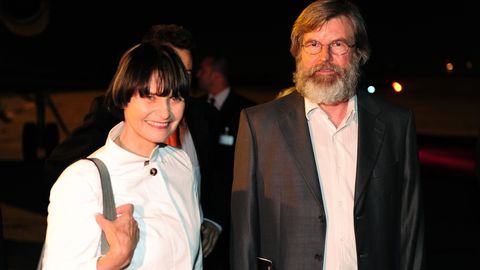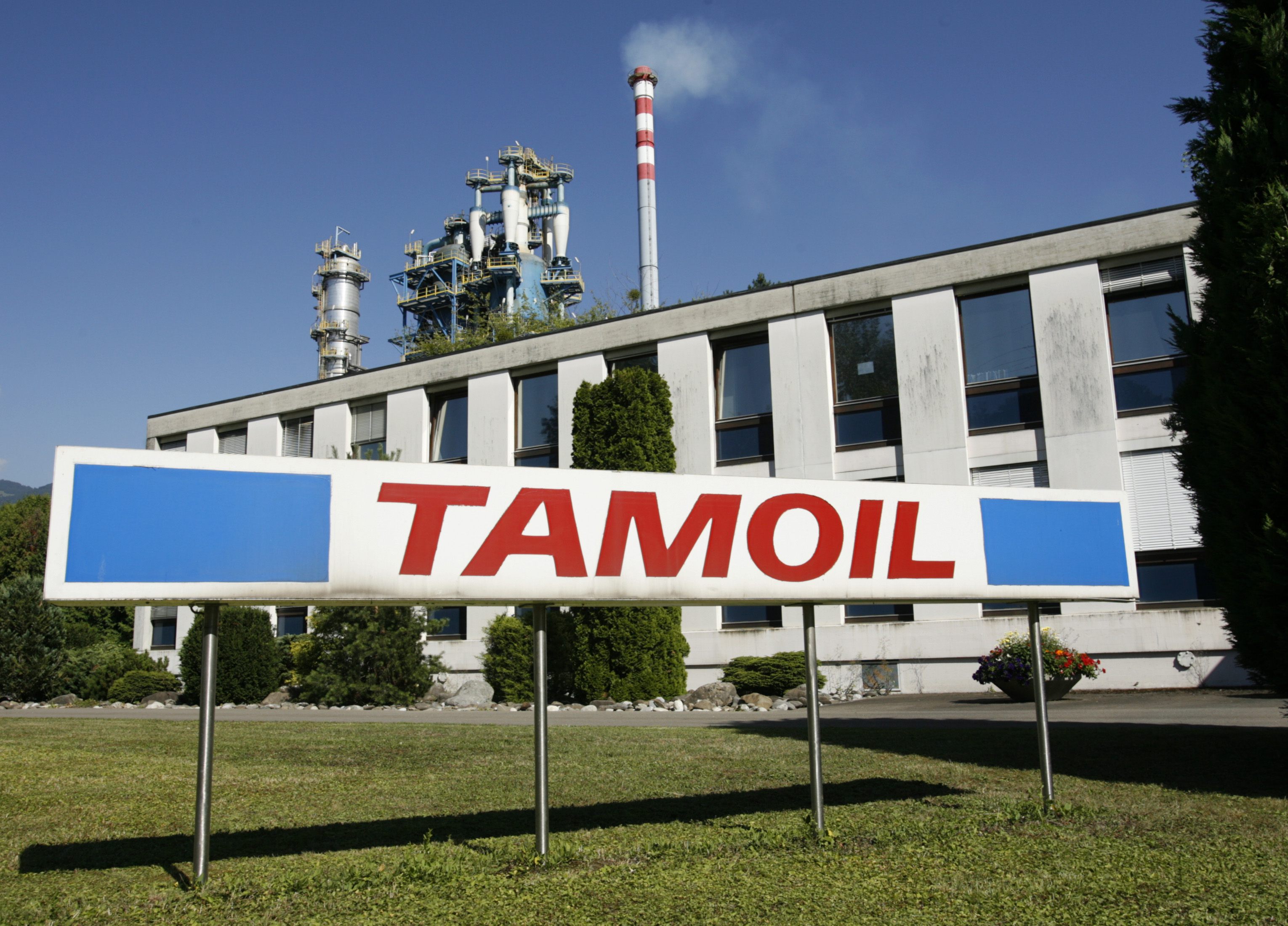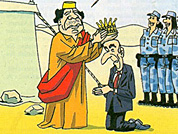Swiss firms await Libya diplomatic outcome

The normalisation of business ties between Switzerland and Libya could still take many months despite the release of Swiss businessman Max Göldi this week.
Swiss exports to Libya plunged 45 per cent last year and imports from the African state fared even worse – down by more than three-quarters. Libyan oil supplies have also plummeted while banks have seen massive withdrawals.
These are the economic consequences of a diplomatic fallout between the two countries that followed the arrest of Hannibal Gaddafi, son of Libyan leader Muammar Gaddafi, in Geneva in 2008.
In March of this year Libya announced a “total trade boycott” of Swiss goods, particularly industrial goods and medicines. However, trade between the two countries was already limited compared with the total volume of exports of both states.
Max Göldi, an employee of Swiss-Swedish firm ABB, flew home to Switzerland on Monday after being caught in the middle of the spat and being detained in Libya for almost two years. But his release, following pressure from European states, is just one step in a long process of reconciliation, according to experts.
Geneva-based business consultant and former secretary of the Swiss-Arab chamber of commerce, Elias Attia, believes several diplomatic actions would have to be completed before the business situation improves.
ABB business unaffected
One of the most important steps is the ruling of a Court of Arbitration on the events of Hannibal Gaddafi’s arrest and subsequent publication of police mugshots in a Geneva newspaper. The tribunal has been agreed in principle, but has yet to be set up.
“It will take a very long time to restore normal trading because there are many problems to be resolved first,” Attia told swissinfo.ch. “It could take several months or even a year – it is still very unclear.”
But while Libya offers lucrative contracts for manufacturers involved in the oil business, the market represents just a small fraction of revenues for Swiss firms. Even during normal years Switzerland exports only around 0.14 per cent of its total goods to Libya.
Ironically, ABB – the company most involved in the dispute – said its business was not badly disrupted despite one of its employees languishing in a Libyan jail. Most projects, including the upgrade of Libya’s electricity grid, carried on as normal through ABB sites in other countries, according to company spokesman Wolfram Eberhardt.
“The only change was that we did not send ABB employees from Switzerland,” he told swissinfo.ch. He added that it would take some weeks to establish how future business – that represents about 0.1 per cent of total group revenues – would develop.
Firms tight-lipped
Food manufacturing giant Nestlé was forced to switch its representative office from Libya to Egypt, but the company said the distribution of its products was unaffected. Watch manufacturer Swatch also said it was a case of business as normal.
The official statistics show that trade volumes reduced dramatically last year even taking into account the global economic downturn. Machinery exports were down nearly 62 per cent while watches and other precision instruments fell 30 per cent, but individual firms are reluctant to reveal figures.
The pharmaceutical industry was also affected by the trading slump with Roche telling Le Temps newspaper that economic relations “are not normal”. But an exact indication of how things are faring for the industry is missing.
One of the clear losers was Swiss International Air Lines, forced to stop flights to Tripoli last year, with the timing of a resumption as yet unclear. Banks also suffered as some SFr5 billion ($4.38 billion) of assets were withdrawn by Libya in 2008 (statistics for 2009 are not yet available).
“Regain trust”
It is easier to trace the change in trade from Libya to Switzerland, which is largely based on oil products. A Libyan threat to suspend all oil exports did not materialise, but they still dropped from 3.8 million tonnes in 2008 to 1.4 million last year.
However, this had no impact on Swiss car drivers or industry, according to Rolf Hartl, managing director of the Swiss Oil Association.
“Switzerland is such a small consumer of oil that the shortfall could easily be found from other countries,” he told swissinfo.ch.
Equally, Libya’s total oil revenues would hardly have been affected as the Swiss market is so small, he added. Libyan oil concern Tamoil also has a presence in Switzerland with several petrol stations and an oil refinery in Collombey, canton Valais, but it is unknown how these operations have been affected.
But Swiss Business Federation, economiesuisse, believes Libya to have been the real loser from the trade slowdown.
“A normalisation of the economic relationship needs time, but it is not a priority,” economiesuisse said in a statement. “Companies must first regain trust.”
Matthew Allen, swissinfo.ch
July 15, 2008: Hannibal Gaddafi and his wife are arrested and charged with abusing their staff. They are released on bail and leave Switzerland. The servants are later compensated and charges withdrawn.
July: Swiss nationals Max Göldi and Rachid Hamdani are arrested as part of several anti-Swiss measures
January 2009: A diplomatic delegation travels to Tripoli.
May: Swiss foreign minister visits Libya.
June: Libya withdraws most assets from Swiss bank accounts.
August: The Swiss president apologises in Tripoli for the arrest.
October: A 60-day limit for normalising relations passes.
November: Swiss ministers say they will pursue visa restrictions for Libyans. On November 30 Göldi and Hamdani sentenced to 16 months in prison and fined for visa violations.
January 2010: Their terms are overturned and cut.
February 14: A Libyan newspaper reports Switzerland has drawn up a blacklist of 188 top Libyans.
February 15: Libya stops issuing visas to citizens of nations in the Schengen zone.
February 22: Göldi ordered to report to prison. Hamdani obtains an exit visa.
March 3: Libya declares a trade and economic embargo of Switzerland.
March 27: Libya lifts its visa ban on Schengen citizens after EU president Spain says the visa blacklist against 188Libyans has been scrapped.
April 13: A Geneva court backs a claim by Hannibal Gaddafi that the publication of leaked police photos infringed his privacy, but rejects his claim for SFr100,000 ($95,000) in damages.
June 10: Göldi is released from jail and moves to a Tripoli hotel.
June 12: Swiss and Spanish foreign ministers travel to Tripoli.
June 14: Göldi arrives back in Switzerland.

In compliance with the JTI standards
More: SWI swissinfo.ch certified by the Journalism Trust Initiative





You can find an overview of ongoing debates with our journalists here. Please join us!
If you want to start a conversation about a topic raised in this article or want to report factual errors, email us at english@swissinfo.ch.